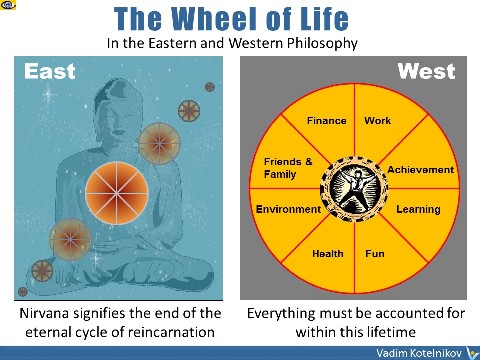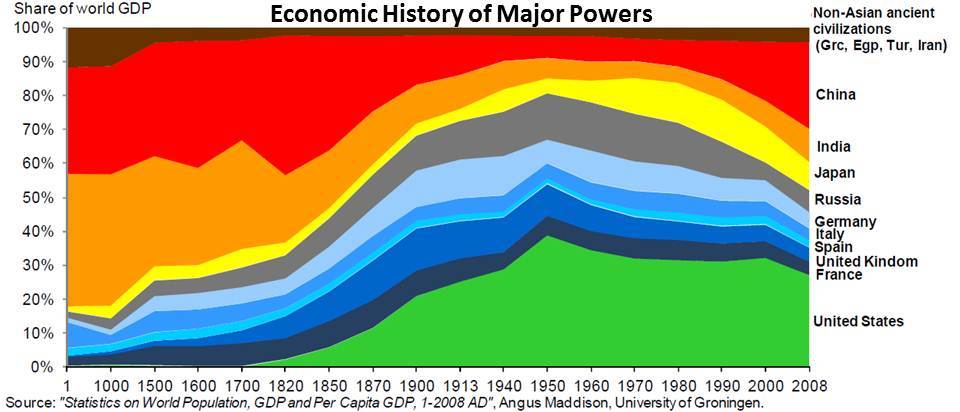|
|
| |
The Wheel of Life is viewed differently in Eastern and Western philosophies.
Buddhists and Hindu believe in cycles of reincarnations.
Westerners believe in single human life.
|
|
 |
|
|
Main Principles. Search for Absolute
Truth, Beliefs, Individualism / Collectivism,
Leadership, Improvement,
Innovation, Venturing
 Vadim Kotelnikov
Vadim Kotelnikov
 |
|